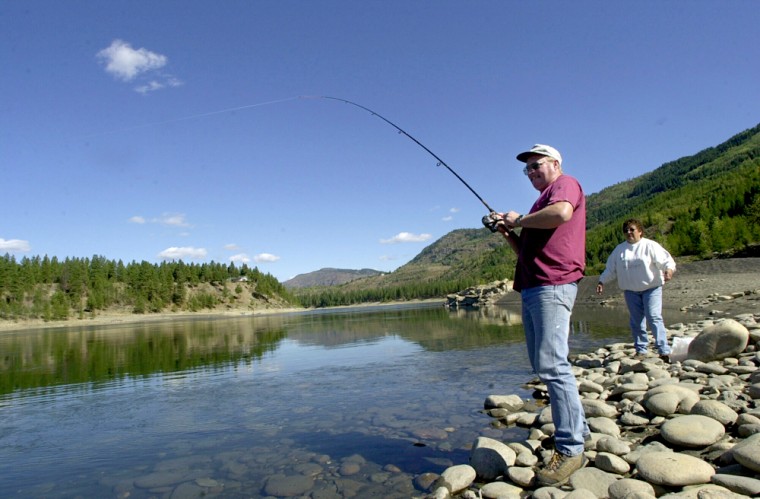In what is believed to be the first case of Americans suing a Canadian company under U.S. Superfund law, a tribe is demanding that the owner of a huge smelter north of the border comply with environmental laws in cleaning up waste dumped for decades in the Columbia River.
In a lawsuit filed Wednesday in federal court in Spokane, the Colville Confederated Tribes asked that Teck Cominco Metals Ltd. be ordered to immediately comply with a U.S. Environmental Protection Agency order to pay for studies of pollution from the smelter in Trail, British Columbia.
The lawsuit contends that for nearly 90 years, the smelter dumped millions of tons of heavy metals into the river, with the pollution washed into the United States. The tribe, whose reservation borders the Columbia, says its members eat fish from the river for subsistence, as well as cultural and spiritual reasons.
The river is “an international treasure that needs to be preserved and protected,” said Joe Pakootas, chair of the tribe’s business council.
Vancouver, British Columbia-based Teck Cominco operates the world’s largest integrated lead-zinc smelting and refining complex in Trail, about 10 miles north of the border.
Company's response
Officials for Teck Cominco said they were disappointed by the lawsuit.
“This suit will result in time and money being wasted on litigation, which could best be used to address the public’s environmental concerns,” said senior vice president Doug Horswill.
Tribal attorneys said the lawsuit is the first in which U.S. residents have sued a Canadian company under the Superfund law, which forces polluters to pay for cleaning up hazardous waste sites.
The issue of whether U.S. law applies already has created friction between the nations.
The Canadian government has strongly objected to the U.S. government about the EPA order filed in December, which Canada considers to be an attempt to extend EPA authority into Canada.
Teck Cominco contends that a Canadian company operating in Canada is not subject to U.S. laws. But last year it did offer to spend $13 million for health and ecological studies and to pay to clean up metal contamination attributable to its operations.
Attorney Richard Du Bey, representing the tribes, said Teck Cominco’s offer did not meet EPA standards.
Du Bey said that although he expects Teck Cominco will immediately challenge the U.S. court’s jurisdiction, U.S. law applies to pollution that flows into the country.
Besides requiring the company to pay for environmental studies, the Superfund law calls for fines of $27,500 for each day since the EPA order was filed, or about $5.7 million and rising, Du Bey said.
Long legal process
Under international law, the plaintiffs have 90 days through a process administered by the International Court of Justice in The Hague, Netherlands, to serve the company with the lawsuit. Then the company has 90 days to respond.
The lawsuit says that from 1906 to mid-1995, Teck Cominco dumped 145,000 tons of arsenic, cadmium, copper, mercury, lead and zinc directly into the river each year, with the wastes contaminating the surface water, ground water and sediments of Eastern Washington’s upper Columbia River and Lake Roosevelt.
Teck Cominco has maintained the pollution came from several sources and that it shouldn’t be saddled with all the costs.
Mark Edwards, an environmental manager for Teck Cominco, said the company has spent $1 billion in recent years to improve smelter operations, reducing air emissions by 90 percent and water pollution by more than 99 percent.
He said recent tests of water quality in the Columbia River were well above the standards set by both nations.
